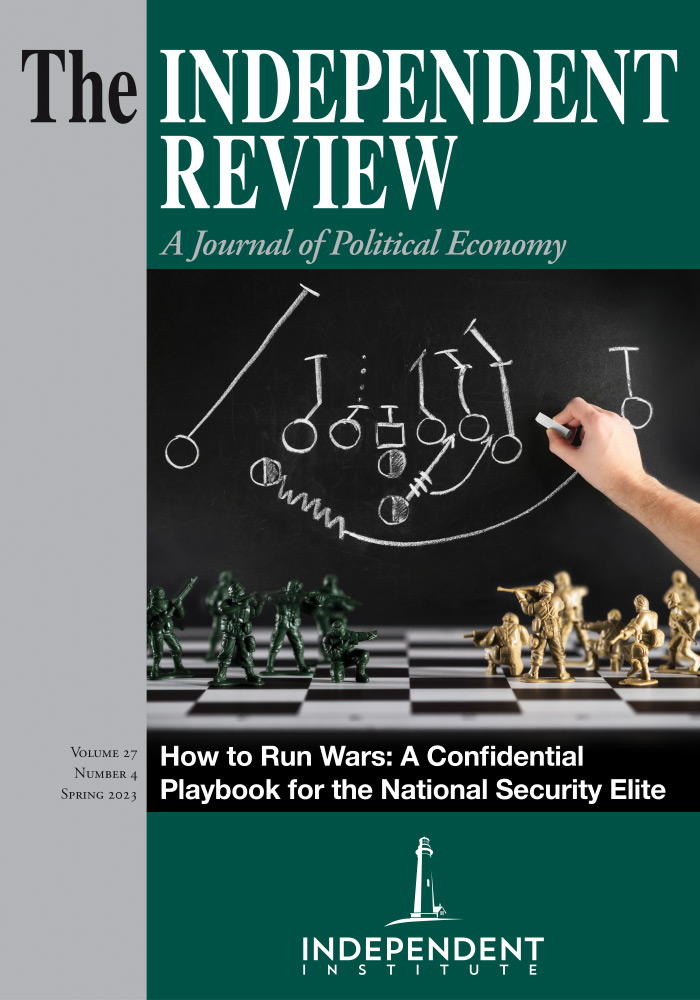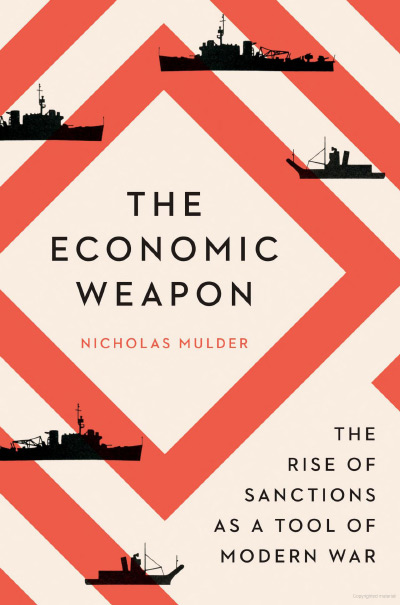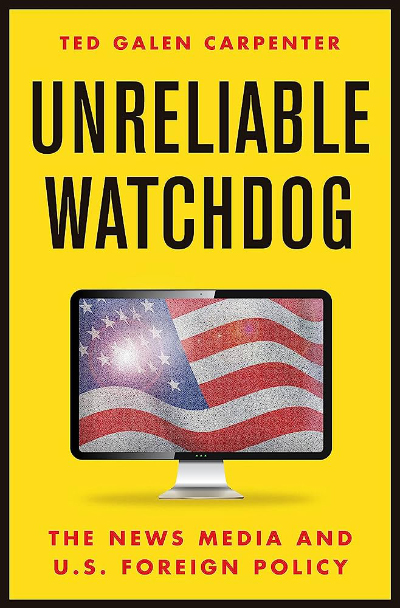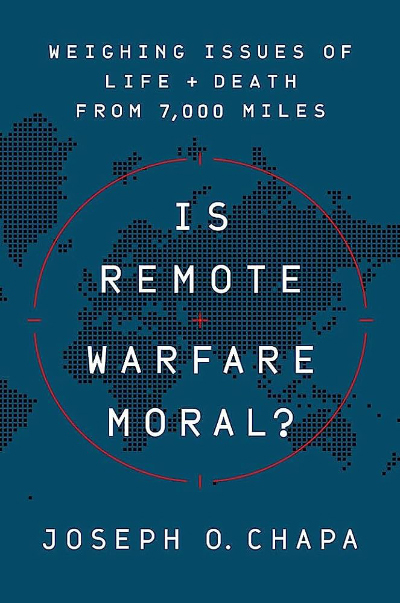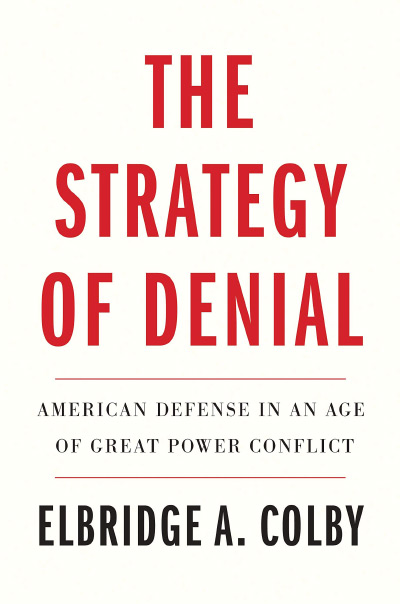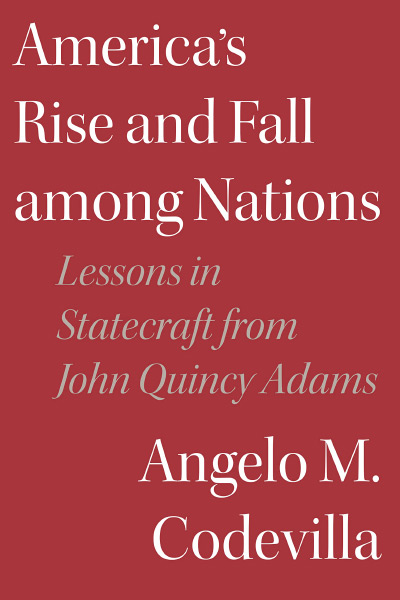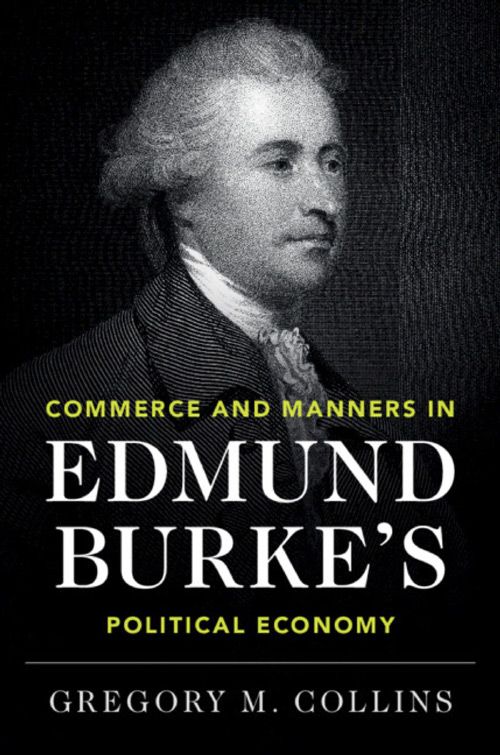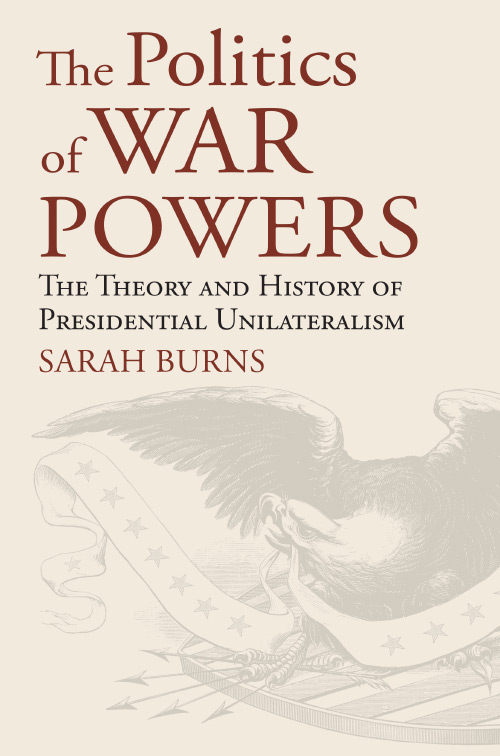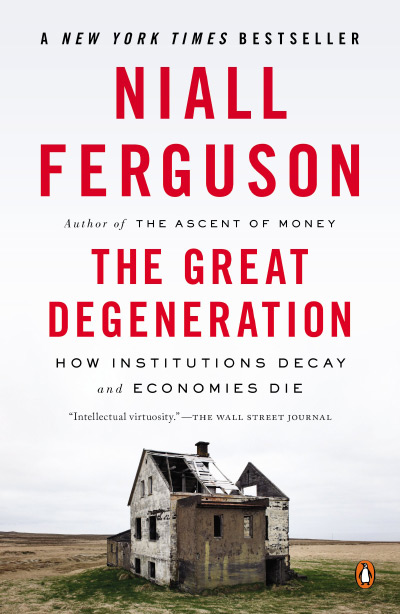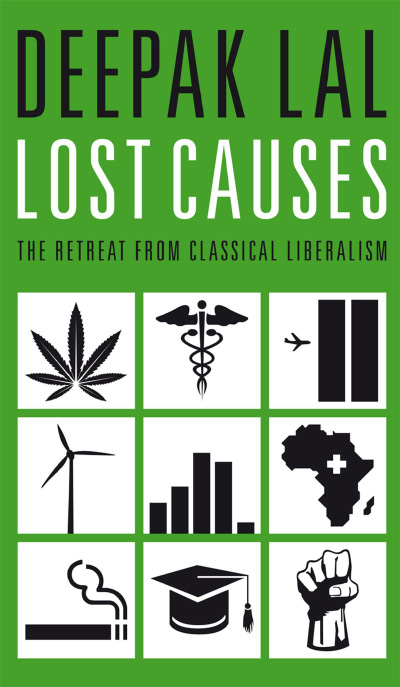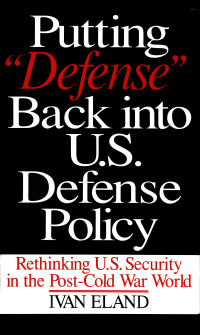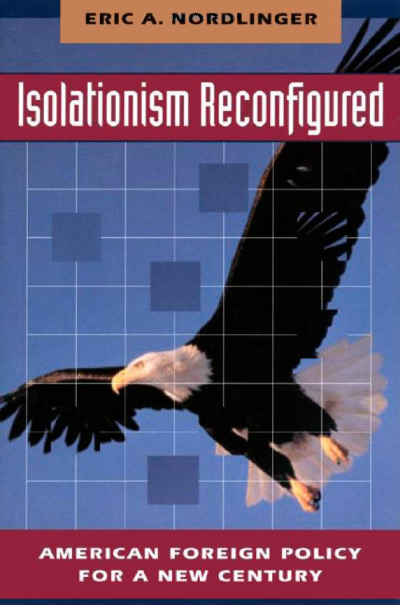International sanctions have been a central part of the response by the United States, Canada, and European Union governments to the Russo-Ukrainian War, which began in 2014. The costs of sanctions have fallen on Russians—elites and ordinary citizens—but also on millions of others outside of Russian borders, as illustrated by rising energy prices facing people throughout Europe. For many, sanctions are a normalized part of international relations; they are seen as an alternative to war for influencing the behaviors of other governments. Nicholas Mulder’s The Economic Weapon provides important insight into the history of sanctions, making clear that economic sanctions are, and were always intended to be, a weapon of war rather than an alternative to war. In addition, his analysis raises some of the overlooked effects of sanctions while raising important questions for reflection today.
The book’s main contribution is its detailed history of the rise of modern economic sanctions. Mulder identifies the League of Nations founding as a crucial juncture for the institutionalization of sanctions as a foreign policy tool. Founded in 1920 as part of the Paris Peace Conference that ended World War I, the League was a global organization formed to foster world peace. Although many today view the League as ultimately failing to achieve its main goal of maintaining world peace, one of its lasting effects was the normalization of economic sanctions as a tool of warfare.
Economic blockades have a long history, but the League sought to institutionalize sanctions as a proactive policy tool. The underlying logic was that sanctions could be used during peacetime, and not just during wartime as in the past, against transgressing nations to prevent future wars. Sanctions were viewed as a promising tool because of the interconnectedness of the global economy. Based on this reasoning, Article 16 of the League’s charter (the Covenant of the League of Nations) set the stage for sanctions on nations who resorted to war by directing members to undertake the “severance of all trade or financial relations, the prohibition of all intercourse between their nationals and the nationals of the covenant-breaking State, and the prevention of all financial, commercial or personal intercourse between the nationals of the covenant-breaking State and the nationals of any other State, whether a Member of the League or not” (The Covenant of the League of Nations, Article 16). Mulder provides a detailed history of the emergence of this obligation, the intense debates—both ideological and practical—involved between the key stakeholders, and the legal-bureaucratic structure established to implement and enforce sanctions.
As the title of the book indicates, those involved in the design of sanctions framework were fully aware that it was a weapon of war instead of a means of avoiding war. In fact, it was believed that economic sanctions were a weapon that was more devastating than traditional instruments of war. Mulder quotes Woodrow Wilson, who, in 1919, stated that sanctions were “something more tremendous than war” and a “deadly remedy” that would remove the “need for force” in response to threats and transgressions (p. 2). Among members of the League, sanctions were referred to as “the economic weapon,” indicating that Wilson’s reflections were held more broadly among the members.
Mulder documents how the institutionalization of sanctions shifted how governments framed their understanding of war, economics, and international relations. He argues that “A coercive policy that used to be possible only in times of war—isolating human communities from exchange with the wider world—now became possible in a wider range of situations” (p. 3). In creating the norms and institutional apparatus in support of sanctions, the League has had a lasting effect that is still observable today.
Initially, many proponents of sanctions suggested that the effect of sanctions would be limited to their intended target. Mulder quotes Woodrow Wilson once again, who stated that “It [sanctions] does not cost a life outside of the nation boycotted, but it brings a pressure upon the nation which, in my judgment, no modern nation could resist” (p. 2). History suggests, however, that sanctions have an array of perverse consequences. Mulder discusses, for instance, the imposition of sanctions against Italy following Mussolini’s invasion of Ethiopia in 1935, which were ineffective in stopping the invasion and occupation.
More broadly, the possible threat and actual implementation of sanctions led to changes in the behavior of the Axis power governments, who shifted towards economic self-sufficiency as a pre-avoidance strategy. In order to work, economic sanctions require economic integration. The shift to self-sufficiency and economic nationalism undermined the ability of the League to impose the intended costs, while intensifying tensions between larger nation-states, making violence more likely. The general result, according to Mulder, was that “Sanctions exploited the economic networks of interwar globalization but ultimately undermined its political foundations” (p. 13). While sanctions failed to work in the intended manner against more powerful authoritarian governments, Mulder argues that they were effective against smaller states. The irony is that these smaller states were a relatively minor threat to global conflict; sanctions worked best where they were needed least to reduce the chances of large-scale war.
While the main contribution of The Economic Weapon is the detailed history of economic sanctions during the interwar years, it raises several interesting questions for those interested in war, peace, and human wellbeing. Despite how sanctions are framed today as an alternative to war, Mulder’s history makes clear that sanctions are a tool of war. The costs of this instrument of war often fall on innocent people both in the target country and in other countries. From this perspective, sanctions are often more like a shotgun blast than a laser—they might hit the target, but they will also hit non-targets as well. And in some cases, the targets of sanctions can avoid these costs leaving the most vulnerable to bear the brunt. This raises both practical and ethical questions regarding sanctions.
Practically, how effective are sanctions at achieving their stated ends? What are the costs in terms of reductions in human well-being in adopting sanctions as a means to achieve these ends? These are important questions that are especially hard to assess due to a variety of political frictions. For instance, voters in the sanction-imposing country are unlikely to observe or understand the full costs of sanctions on ordinary people abroad (in and outside of the target country). They are therefore limited in their ability to provide feedback to their elected officials regarding these policies. Moreover, ordinary people outside the sanction-imposing country have little to no political voice and no way of holding elected officials in the sanction-imposing country accountable for the costs their policies impose. Together, these factors incentivize the over-use of sanctions and the persistence of sanctions even where they are not having the desired effect and imposing significant harm on non-targets—due to the lack of feedback and direct accountability for the political elite implementing and sustaining the policy.
These dynamics lead to an important ethical question—if sanctions are an instrument of war, what are the ethical obligations of states in deploying this weapon where there is a good chance that innocent non-targets will be harmed? In evaluating the answer to this question, it is crucial to appreciate that the harms from sanctions do not just manifest in the immediate term, although these costs can be significant in themselves.
Sanctions purposefully undermine trade—the movement of goods and services—with the intention of harming the political elite. In doing so, they undermine the property rights and freedoms of innocent people across time and geographic space. These violations include the right to associate and cultivate social bonds, the right to participate in mutually beneficial trade, the right to engage in self-determination, and the right to experiment with different ways of living. Once damaged or destroyed, these rights and freedoms may not be easily recovered if they can be recovered at all. Where this occurs, economic sanctions adopted to prevent harm and uphold liberal values may have the opposite effect. Given the direct and indirect costs, many of which are long and variable, it seems that the default bar for imposing sanctions should be extremely high, where sanctions are viewed as a rare exception rather than a normalized part of international relations.
The Economic Weapon is a valuable contribution both because of the historical context it offers and also because it offers the reader the opportunity to consider the actual realities and consequences of economic sanctions. Given the prevalence of economic sanctions today, and the likelihood of their continued use in the future, critically reflecting on these issues is of great importance for anyone concerned with peace and human well-being.
| Other Independent Review articles by Christopher J. Coyne | ||
| Spring 2024 | Murray Rothbard on War and Foreign Policy | |
| Fall 2023 | Kenneth Boulding: Knowledge, Conflict, and Power | |
| Summer 2023 | A Symposium on Gene Sharp’s The Politics of Nonviolent Action | |
| [View All (46)] | ||

